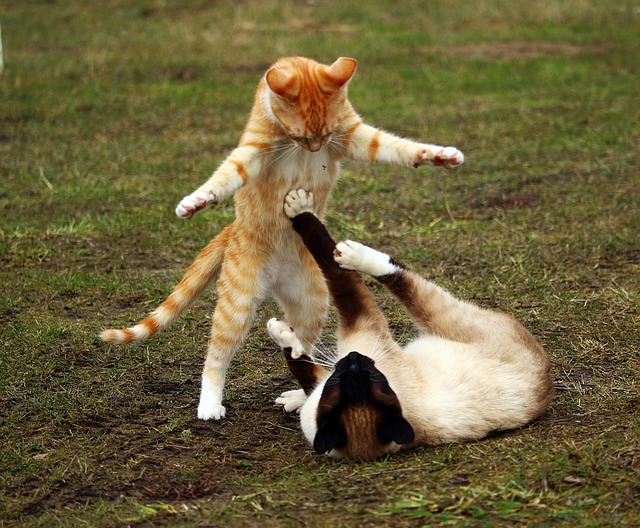Sup, guys? I’m starting a series on how to repair relationships (of all kinds), which caused me to wonder why relationships fail in the first place. To start, we all have stumbling blocks when it comes to relating interpersonally to others, me probably more than any of you. I’m a veritable expert when it comes to discord in relationships and that means I’ve also had quite a bit of experience when it comes to repairing them.
In this first installment (let me be honest and say I love the use of the word “installment” haha), let’s look at WHY relationship discord occurs. I mean, it comes from somewhere. I know we would prefer to believe that every relational hiccup is caused by “someone else,” but that isn’t the case realistically (or statistically). Insomuch, let’s touch on six scenarios leading to relationship upheavals.
1. Anger
A hot-tempered person stirs up conflict, but the one who is patient calms a quarrel (Proverbs 15:18).
Oh, this is definitely one for me. Life is difficult and situations occur which strain our patience and weigh on our nerves. Sometimes we snap, and our anger boils over. Maybe the tough situation involves the other person in the relationship or maybe it doesn’t. Either way, they can be the recipient of an outpouring of the disappointment and anger we feel in our hearts. This is a big reason why relationships fail.
2. Expectations
From everyone who has been given much, much will be demanded; and from the one who has been entrusted with much, much more will be asked (Luke 12:48).
Peeps, this has my name all over it. ALL. OVER. IT. This how I roll. Once I have enough experience with a person or institution (as data points), I assign an expectation of behavior. For example, I ordered two different pieces of furniture from an online company. My order and delivery experiences with those two pieces of furniture were exemplary. I have recommended this company multiple times as a result.
However, the third item I ordered had a very different outcome. After having to cancel and reorder the item and spend over an hour on the phone to ensure the correct delivery date, the item was delivered on the wrong day. I came out of the operating room and received the hours old notification… and completely lost my temper on the phone.
Here’s the caveat: I created an expectation of behavior for the company based on previous experiences. While I don’t think this is inherently bad, it IS a setup for failure in a lot of ways and contributes to why relationships fail. We need to hold people (and institutions) accountable while allowing for grace.
3. Pride
When pride comes, then comes disgrace, but with humility comes wisdom (Proverbs 11:2).
If Expectations has my name on it, then this one does, too. A friend and I recently discussed the definition of pride. I don’t think being prideful means accepting praise or allowing yourself to be acknowledged for a job well done. Contrarily, pride starts when we begin thinking we are better than someone else. Maybe we feel superior because of our upbringing, religious affiliations, political beliefs, or even with mundane things such as our laundry methods.
Believing we are better than someone else automatically shuts off our brain from being able to listen to them. When we get caught in the web of self-entitlement, we can wall ourselves off from vulnerability, which can be devastating to a relationship.
4. Fear
The Lord himself goes before you and will be with you; he will never leave you nor forsake you. Do not be afraid; do not be discouraged (Deuteronomy 31:8).
Ever acted poorly in a relationship because you were afraid of losing someone? Technically, the only person we can lose is ourselves, but relationships and friendships do end as seasons close and people move on. Often times, our identity can be so rooted in another person that we feel we would lose part of ourselves if they were to leave.
Realistically, this isn’t true. We are completely whole on our own. But, it can be difficult to feel this way if we haven’t taken the time for self-care or to develop a relationship with God. Fear can cause us to act with jealousy or even malice toward those we love.
5. Insecurity
Be alert and of sober mind. Your enemy the devil prowls around like a roaring lion looking for someone to devour (1 Peter 5:8).
This one goes along with number four. While four has us fretting about losing someone, number five has us fearing that we are not enough. Insecurity also comes from a lack of inner wholeness. We compare and find places where we fall short and turn them into reasons why a relationship or friendship ended.
Now, we all have flaws and room for growth. However, comparison kills. It’s death. We can’t live our lives measured by someone else’s “life ruler.” Sometimes humanity acts out because we feel deficient in some area and want the other person to heal the wound. No person is capable of that. Not even my therapist.

Here’s the thing: if they don’t love you enough to work through differences, that’s on them. It’s not on you. You are completely deserving of love just as you are right now. How we see ourselves directly effects why relationships fail.
6. Selfishness
Love is patient, love is kind. It does not envy, it does not boast, it is not proud. It does not dishonor others, it is not self-seeking, it is not easily angered, it keeps no record of wrongs (1 Corinthians 13:4-5).
Truthfully, this is the most difficult one for any of us to see, me especially. Self-preservation of our time, emotions, and efforts is natural in the realm of the Animal Kingdom but not in the context of the Spiritual Kingdom. However, mostly we tend to put ourselves first.
I’ve heard it said that relationships are 50/50. They aren’t. Not even close. And, I’m not talking about gender roles. Relationships are 100/100. That’s the only way they work with any longevity. To clarify, we can’t always put the other person first to our own detriment, but we can’t do the reverse either. We can’t put ourselves first to the detriment of the other person. That’s one of the reasons why relationships fail.
Okay, so now we’ve scratched the surface on why we encounter difficulties in our relationships and friendships. Next week, we’ll take a look at how to repair them.
Love, K.





Amen Ms. Kelly! Well said author! Sometimes we allow ourselves to get into strained relationships because we don’t recognize the signals we are sending to someone else. In this digital age, when emails and texts seem to be the preferred method of communication, the art of true communication suffers. When couples speak face-to-face, we receive lots of visual cues to help us interpret what we think we’re hearing. You can’t get that via non-visual communication. The result, we interpret (often incorrectly) what the other might be attempting to communicate. Loved this post young lady. Thank you for the reminder to “Check Ourselves before we Wreck Ourselves.” God’s blessings
I love that!!! The art of face to face communication does seem to be on the way out. I hope our culture is able to realize that one on one connection far surpasses the digital ones.
Well, there you go, stepping on my toes again! Always food for thought Kelly.
This is such an insightful post and I completely agree…relationships are about each person giving 100%. Certainly we’ll falter but without that level of commitment, a relationship cannot continue to flourish.
Peace and grace,
Tammy
Yes, a deep level of commitment is required. Otherwise, we run when trouble comes.
If we are honest, we’ve all dealt with these struggles in our relationships. While I agree and recognize that all are valid, I believe selfishness is the root and all others are segments of that root. As you point out, relationships are 100/100 and that’s the only way to overcome the “my needs are more important than your needs” syndrome that most of us live by. Thanks for diving into a hard topic. Looking forward to how you’re going to solve all our problems in your next post (just kidding–sort of…)
This is a great post and a fantastic list. I have shared it on social media. I especially like the phrase, “How we see ourselves directly effects why relationships fail.” I think this is so vital to understand. The experiences of our past color the way we see everything—it’s a faulty lens, and our reactions come from our view through that lens. Thanks for sharing this.